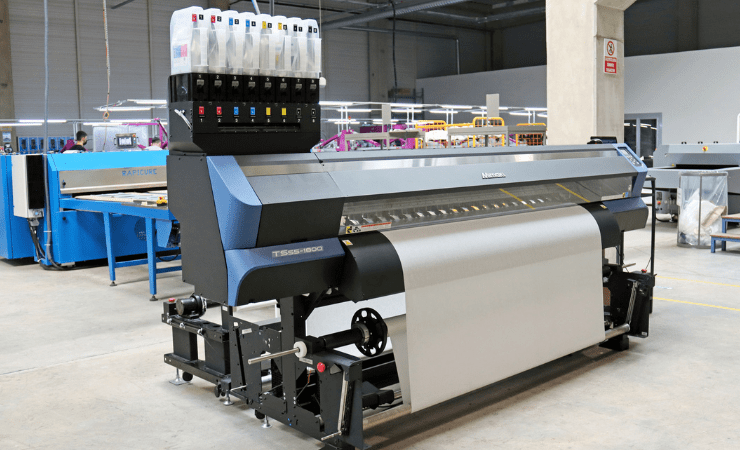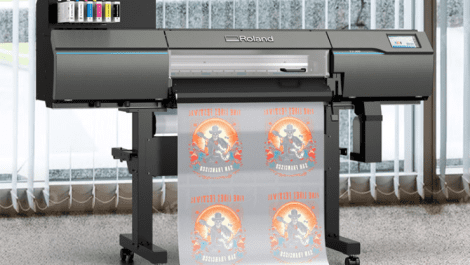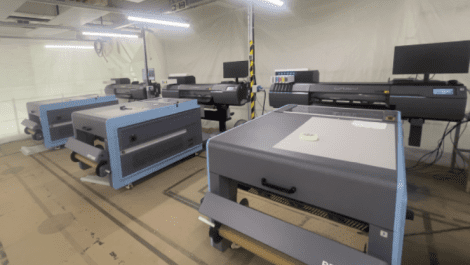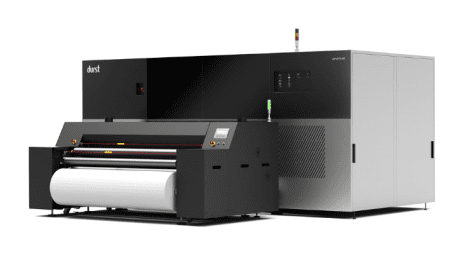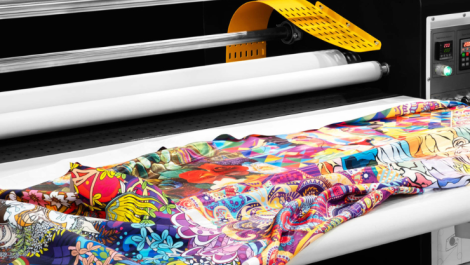Global fashion supplier Kardem Tekstil has invested in the Mimaki TS55-1800 to reduce waste and save time.
The sublimation transfer printer has an 1800mm printing width and can digitally print on dresses, tights, coats, sweatshirts and tulle.
The Turkey-based company, which opened its first factory in Smederova, Serbia, in 2016, serves global brands such as Abercrombie & Fitch, Bershka, Inditex Group, H&M and Ralph Lauren.
Factory manager Raşit Akgör said, ‘It is almost impossible to obtain a 50-colour design in a collection with screen printing, and the high cost and process that will result increase the difficulties.
‘There is also the cost of waste resulting from the high amount of test printing to reach the correct colour value. On the other hand, digital printing offers us new possibilities with its short, fast and error-free production as well as an almost endless amount of colour options.
‘The cost of digital printing is unbeatable for low-volume or multi-colour jobs. The quality prints we obtained with the TS55-1800 at 1200 dpi resolution and the unit costs we achieved show that we made the right investment.
‘We already have printers of numerous Japanese brands that we use in production. We have great confidence in Japanese technology and engineering.’
The company, with a monthly production capacity of 2million pieces of clothing, mainly operates from its base Keşan Factory, which has all the departments such as cutting, sewing, embroidery, printing, quality/control.
Mr Akgör has said that the fabric bolts entering the facility come out as the final ready-to-wear garments and noted that they attach great importance to sustainability as well as quality production.
He said, ‘Our factory has reached a self-sufficient energy power by switching to 100% solar energy system in 2020. Being a 100% eco-friendly factory represents an important step. We continue to take the necessary steps for ‘clean production’ and to become a sustainable vision partner for the major players of the fashion and clothing industry.’
Mr Akgör admitted that whilst the new printer has not been used on final products yet, the company will start the trial prints for new season products.
He added, ‘We create applications for the final products in these printers together with our design office and send these samples to the brands we work with. Frankly, I can say that this process went well, as expected.
‘We have not received any negative feedback from our customers regarding our prints. We plan to use the TS55-1800 in the actual production of new orders from the second half of 2022 without interruption depending on the orders from our customers.”
The share of digital printing in the company’s apparel production will initially be 5%, but this figure is expected to increase rapidly.
Mr Akgör said, ‘The processes come to us with a width of 180cm and we used to be able to use 160cm for standard printers in the past, meaning a waste 20cm of fabric at the beginning. This loss in the fabric edges has ended with the TS55-1800.
‘In addition, the 180cm width has increased our productivity as it allows us to print more pieces at once. This advantage will come to the fore even more considering the workload that will increase in the coming period.’
The printer can also work without interruption for a longer period of time using a larger roll.
Mr Akgör said, ‘This is where Mimaki Mini Jumbo Roll Unit came in. Thanks to this feeding unit, we have gained uninterrupted and unattended printing power for a longer period of time.
‘The TS55-1800 continues and completes its work even after the working hours are over and staff leave to go home. We will need larger ink bottles in the next step.’
The company uses Mimaki’s sublimation inks for printing and says it is very satisfied with the results.
Mr Akgör said, ‘Ink is as important as the printer in printing on transfer paper. We have a very good printer and equally good inks.
‘There is no distortion or fading in colours. We can achieve the glossy or matte colours we desire no matter how difficult it is, by adjusting the number of passes in printing. We do not experience cracking, shedding or similar problems after printing.’

